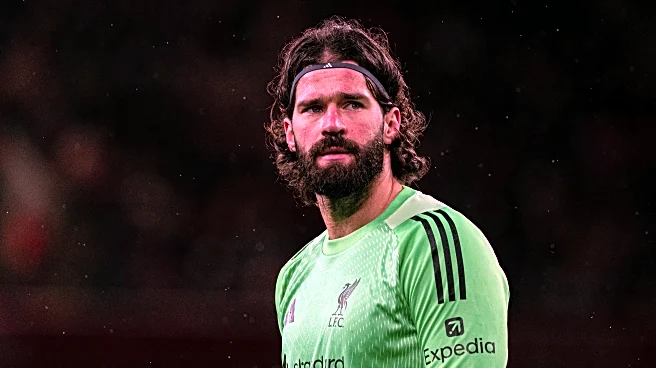What's Happening?
Caitlin Clark, a prominent figure in the Indiana Fever, has been recognized for her significant influence within the WNBA. Recently, Sophie Cunningham, Clark's teammate, made a notable admission regarding Clark's control over team decisions during an episode of her podcast. Cunningham highlighted that Clark, akin to other generational talents like LeBron James, possesses the ability to shape the team's dynamics and decisions. This revelation comes amidst ongoing discussions about player power in sports, particularly following Napheesa Collier's criticism of WNBA commissioner Cathy Engelbert, where Clark was mentioned as a key figure. The discourse around Clark's influence is further fueled by past incidents, such as a viral video from her rookie year that led to changes in league policies regarding team travel.
Why It's Important?
The acknowledgment of Caitlin Clark's influence within the Indiana Fever underscores the evolving dynamics of player power in professional sports. As athletes increasingly become central figures in their organizations, their ability to impact team decisions and league policies grows. This shift could lead to broader changes in how sports franchises operate, potentially empowering players to have more say in their careers and team strategies. For the WNBA, this development might influence how the league negotiates player contracts and addresses player concerns, impacting its overall structure and competitiveness. Stakeholders, including team management and league officials, may need to adapt to this changing landscape to maintain harmony and progress within the sport.
What's Next?
The discussion around Caitlin Clark's influence is likely to continue, potentially sparking debates among fans, analysts, and league officials about the appropriate level of player power. As the WNBA and other sports leagues navigate these conversations, they may consider revising policies to balance player influence with organizational control. Future negotiations between players and the league could reflect these dynamics, possibly leading to new agreements that recognize the growing role of star athletes in shaping their teams. Additionally, other players may be inspired by Clark's example, advocating for more involvement in team decisions and league matters.
Beyond the Headlines
The implications of Caitlin Clark's influence extend beyond immediate team dynamics, touching on broader cultural and ethical considerations in sports. As players gain more control, questions about fairness, equity, and the impact on team cohesion arise. This trend may challenge traditional views on sports management, prompting discussions about the balance between individual talent and collective team effort. Furthermore, the visibility of such influential players can inspire young athletes, particularly women, to pursue leadership roles in sports, potentially shifting cultural perceptions and encouraging greater diversity in sports leadership.










